Cheryl Grimmer case: 'How did my sister vanish from Fairy Meadow?'
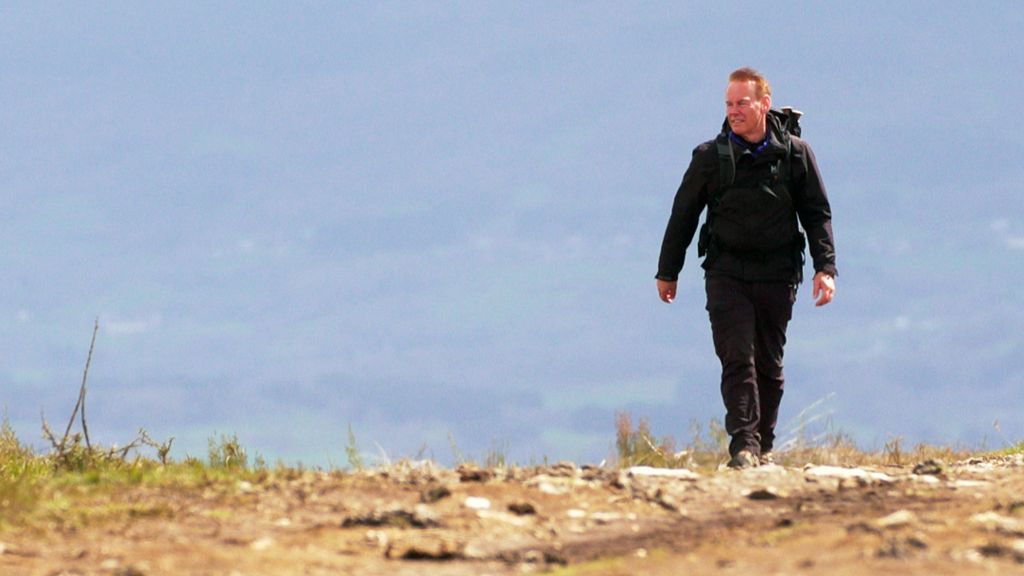 Image source, BBC/ANDY ALCROFT
Image source, BBC/ANDY ALCROFTRicki turned away for just a few seconds and his little sister was taken. She would never be seen again. For five decades he has wrestled with his guilt. Now he has opened up to the BBC's Jon Kay in a new true-crime podcast Fairy Meadow.

"People tell me it wasn't my fault. I've been told that thousands of times. I know I was only seven years old, but I shouldn't have left her."
Ricki is walking a personal pilgrimage. His waterproof trousers are splattered with mud and ripped from barbed wire fences. His boots have started to leak and his feet are covered in blisters. But still, he is walking.
He was planning to hang photos of his little sister onto trees as he walked in her memory, but suddenly the idea is too painful. He puts the black and white pictures back inside his rucksack.
"I can't leave her out in the cold. I just can't do it. I can't bear the idea of her smiling face being out here. Not in the wind and rain."
He has brought the ribbon-tied bundles more than 16,000km (10,000 miles) - from his home in Melbourne, Australia - to northern Spain. He is trekking 200km through the chilly Cantabrian Mountains along part of the Camino pilgrim route.
"I'm not a religious person. Not at all. I mean, what kind of religion would allow it to happen? She was only three years old."
Hearing his accent, other walkers ask why he has come to Europe to hike alone in the depths of winter. It must be summer back home. Wouldn't he rather be on the beach? Ricki's smile becomes a wrinkled frown. Now in his late 50s, he tells them he doesn't like the beach.
Cheryl - Ricki's three-year-old sister - vanished in broad daylight from Fairy Meadow beach in New South Wales in early 1970.
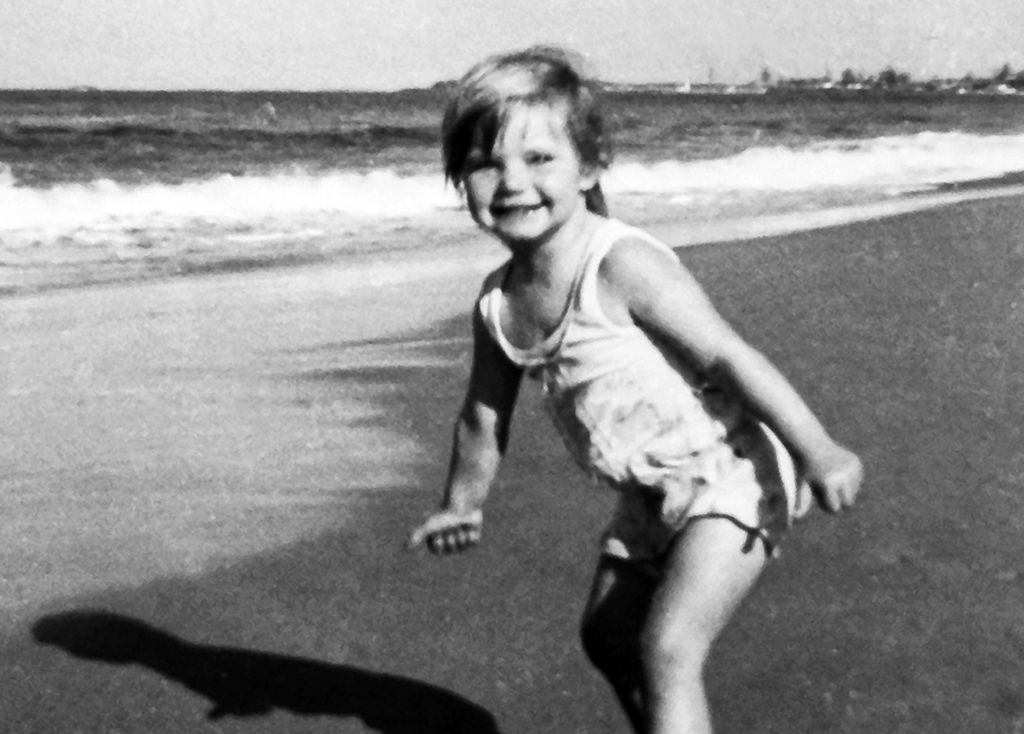 Image source, Grimmer family
Image source, Grimmer familyThe family had recently arrived in Australia having emigrated from the UK. He was only seven years old at the time, but Ricki has always blamed himself for what happened - because he was looking after Cheryl when she disappeared from the changing rooms at the top of the beach. He turned away for just a few seconds. The police have always been convinced the toddler was abducted, but nobody has ever been convicted.
Ricki stops walking for a moment and looks out across the rugged Spanish landscape. "When I go to my grave, I'll take with me what my eyes have seen and we can share those sights together. I've been talking to her this whole journey - my whole life."
A few yards off the main pathway, we come across an ancient stone chapel. Inside, Ricki places his bundle of pictures on the altar next to some candles. He sits in silence for a few minutes, staring at the images of his smiling little sister.
"She's safe here."
When I walked that section of the Camino with Ricki in 2018, he had never really spoken to a journalist before. He had made the occasional appearance at police press conferences asking for information, but had never opened up about what had happened to Cheryl - and the impact on his life. He wanted to talk to me because, suddenly, this cold case seemed to be moving again.
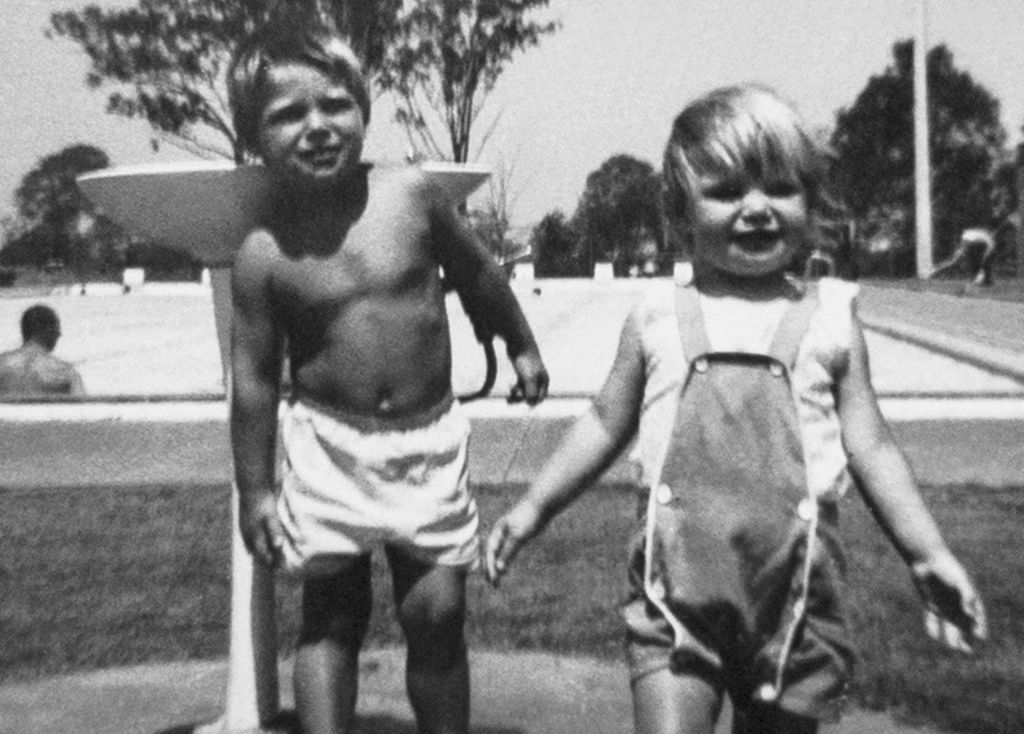 Image source, Grimmer family
Image source, Grimmer familyPolice in Australia had recently found a confession in an old box of evidence. It was made by a teenage boy a year after the toddler disappeared. After a new public appeal, detectives tracked down the "boy" - who was now a man in his sixties - and charged him with murder. He pleaded not guilty.
Trekking through Spain was Ricki's way of clearing his head and preparing for the trial. "I need to know. For Cheryl. For all of us. We need answers."
However, when Ricki returned to Australia, a judge ruled the confession could not be used as evidence after all. The prosecution was dropped and the former defendant, who cannot be named for legal reasons, walked free from court.
"We couldn't believe it. We never knew about the confession," Ricki told me after the case collapsed. "For years, we didn't even know there had been a suspect. Our lives could have been so different. Did we have to go through all this pain and suffering? I don't want any other family to go through what our family has been through. I'm angry. Angry at myself. Angry at the world. Just angry."
The next time I see Ricki in person is in Australia, shortly after the 2019 judgment. He's agreed to work with me on a BBC podcast series about Cheryl's case. We talk about when he first arrived in New South Wales with his family all those years ago.
"We were all so excited," he recalls. "We'd left cold, wet, England to live in the Aussie sunshine. We couldn't believe our luck. It was a fresh start. A new beginning. A new life."

Listen to the Fairy Meadow podcast on BBC Sounds
Jon Kay tracks down people who were on Fairy Meadow beach when Cheryl Grimmer disappeared - and speaks to detectives on the case in the 1970s and more recently. He investigates possible sightings of the toddler and the bizarre ransom note sent to the family shortly after she vanished.

The Grimmer family's new home, Fairy Meadow, was an idyllic-sounding beachside community on the outskirts of Wollongong, New South Wales, an hour south of Sydney. They were among more than a million "Ten Pound Poms" who headed Down Under after World War Two on the Assisted Passage Migration Scheme. The Australian Government was offering foreign families the opportunity to emigrate for just a tenner, to help build the country's population and economy.
Ricki takes me to the beach where he last saw Cheryl. From the car park, he points over to what remains of the old migrant hostel where the Grimmers stayed.
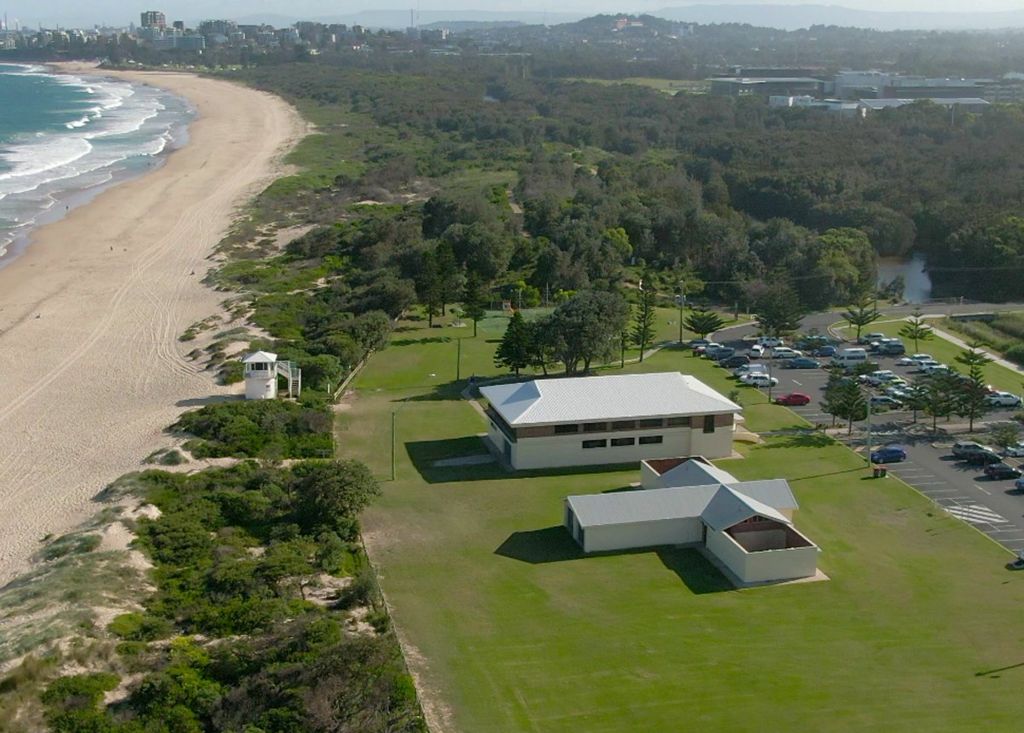 Image source, BBC/Andy Alcroft
Image source, BBC/Andy AlcroftA couple of accommodation huts have been preserved by a local history group. "It was like a huge holiday camp. There were thousands of us - mums, dads and kids from all over the world. A real melting pot. There was entertainment at the weekend, a big canteen to eat in. We spent most of our time outdoors - playing cricket and riding bikes. We couldn't believe our luck."
Photos from those early days show hopeful, happy smiles. Carol and Vince Grimmer had four children. Ricki was the eldest. He was followed by brothers Stephen and Paul. Cheryl was the couple's youngest child. Their only daughter.
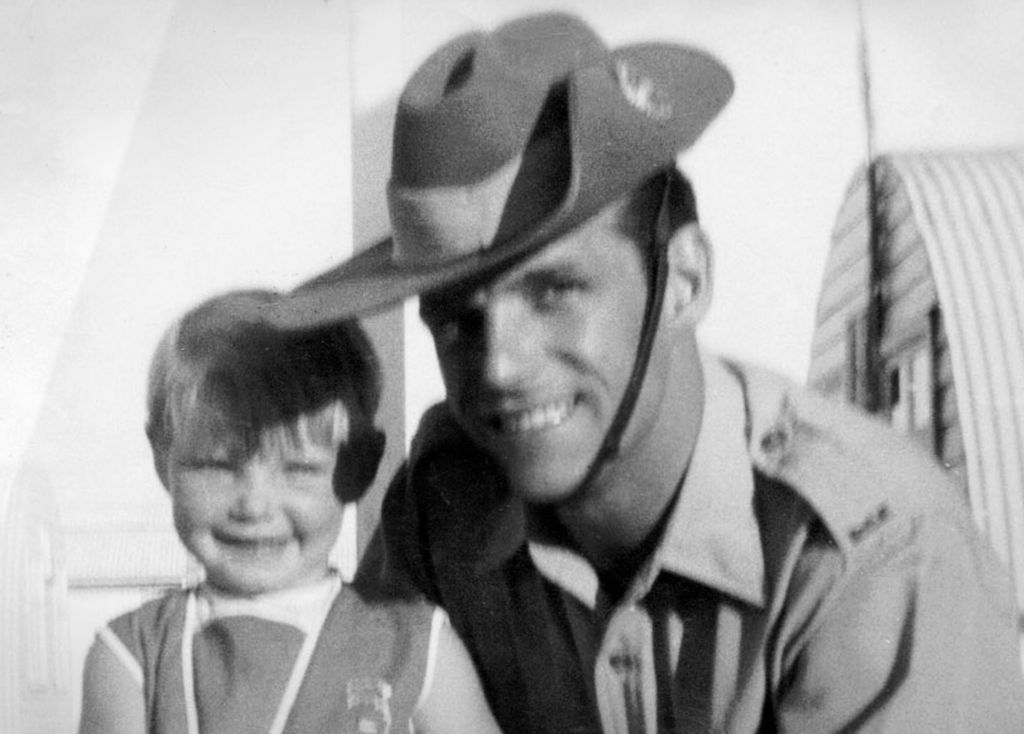 Image source, Getty Images
Image source, Getty ImagesRicki remembers her constant smile: "The best way to describe Cheryl was cheeky and cute. She was always cheerful. Our little princess. She was also a rascal."
But, on 12 January 1970, the Grimmers' dreams fell apart.

It's a boiling hot mid-summer's day. The accommodation huts are stifling and full of bugs. After lunch, Ricki begs his mum to take him and his three younger siblings down to Fairy Meadow beach for a refreshing splash in the sea.
At around two o'clock in the afternoon, the wind suddenly changes. Locals call it a "southerly buster". Sand blows everywhere. Families race to pack up and leave. The children's mum, Carol, tells Ricki to take his brothers and sister up to the changing block at the top of the beach and to wait for her there. It's only a short walk.
Three-year-old Cheryl runs giggling into the ladies' changing rooms. Ricki and his brothers are too embarrassed to follow her. So, after pleading with her to come out, they decide to go back to the beach to get their mum.
"It happened so fast. It took us about 90 seconds to find mum and bring her up to the shower block," Ricki remembers. "But, by the time we returned, there was no sign of Cheryl. She was there - and then she was gone. It was so quick.
"My mother looked around and then she started shaking me and shouting, 'Where did you leave her?' It went crazy after that. Everybody started calling out her name. There was panic. Complete chaos."
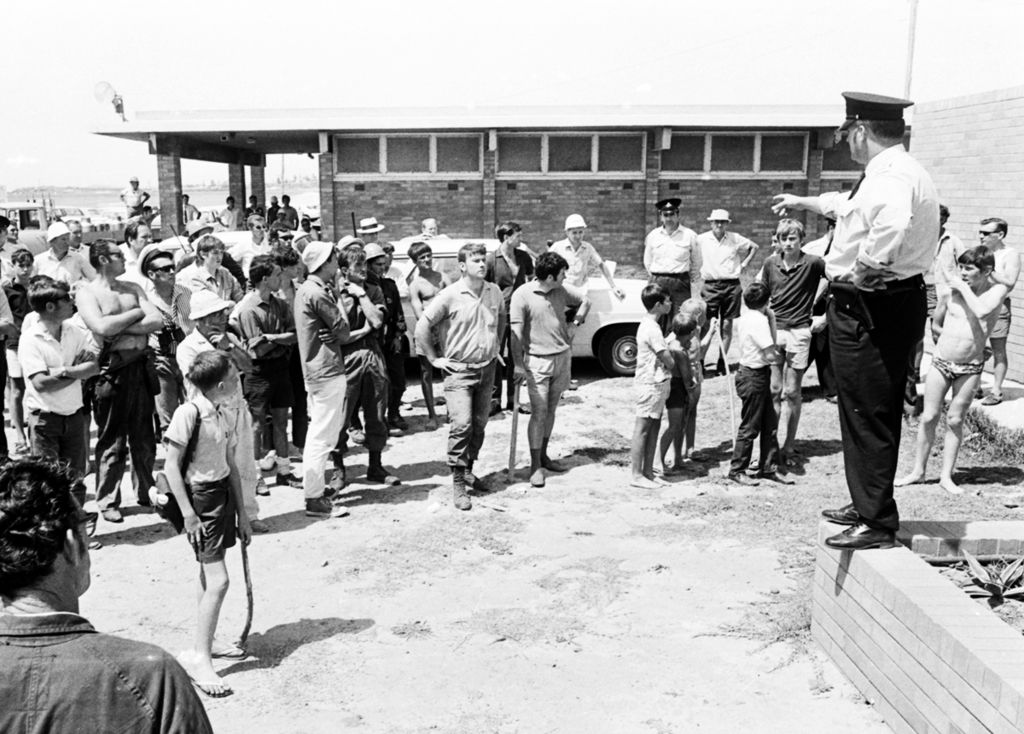 Image source, Getty Images
Image source, Getty Images
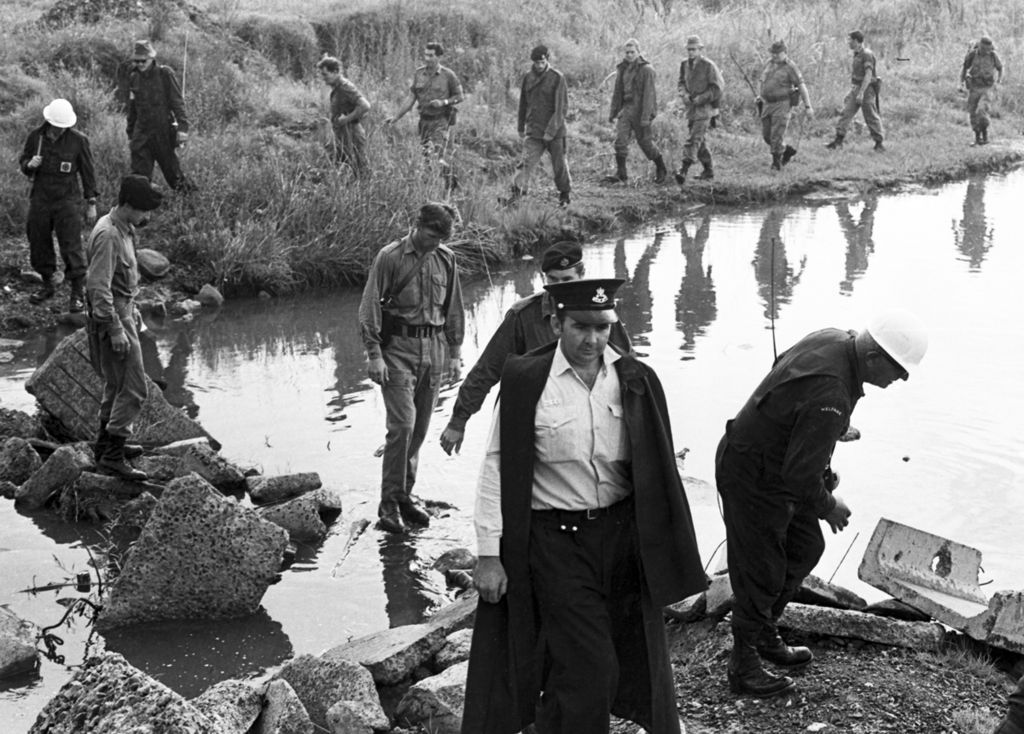 Image source, Getty Images
Image source, Getty ImagesDespite one of the biggest searches in the history of New South Wales - involving thousands of police officers and soldiers - Cheryl was never found.
More than 50 years later, that single moment still dominates every aspect of Ricki's life: "Try putting yourself in my shoes. I'm haunted by it. Consumed by it. I can still see her standing there, laughing and smiling. I still see her running up and down the shoreline. Those images will never go away."
Initially, I thought this story would make a short news bulletin piece. I had no idea how my investigation would develop into our eight-part Fairy Meadow podcast. I've spent a lot of time listening to Ricki. He has told me how that single moment in his childhood has ruined the rest of his life. Flashbacks and nightmares still torment him. There have been broken marriages, fractured relationships with his kids and times when he has felt unable to carry on.
So what keeps him going?
"Before they died, I promised my mum and dad I would find Cheryl - or at least find out what happened to her. I will."
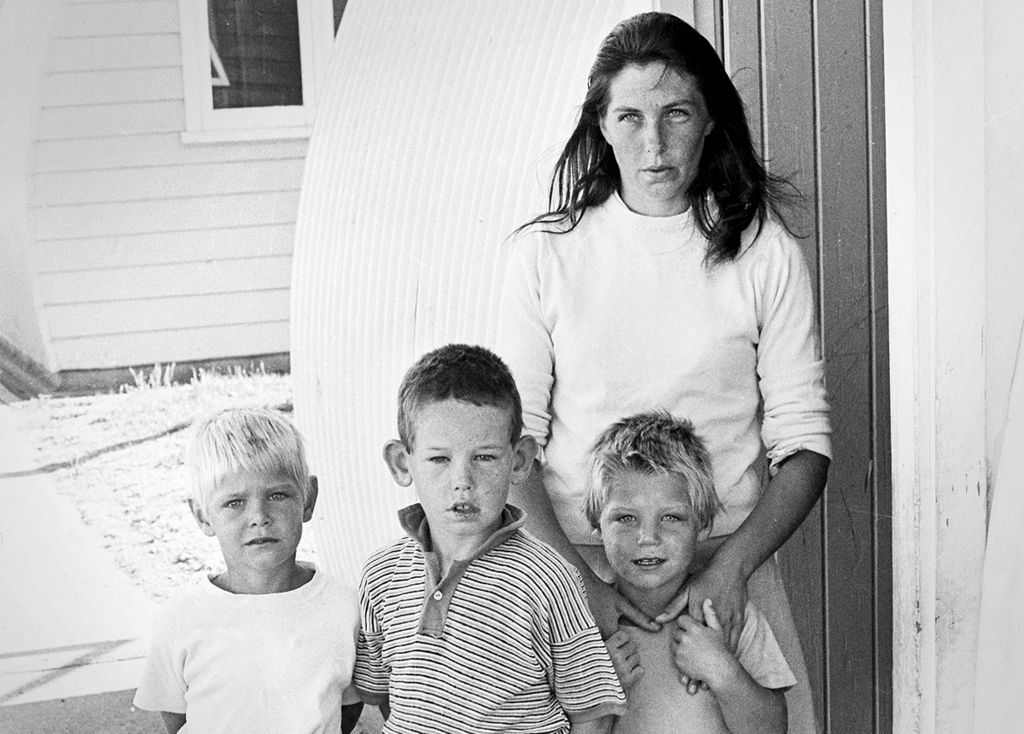 Image source, Getty Images
Image source, Getty ImagesAs part of his quest for answers, Ricki has also come back to the UK. Back to the city of Bristol where he and his family lived before they emigrated to Australia. It's also the city where I live and work as a BBC reporter.
Here, in a hotel room, Ricki shows me a leather-bound journal which he keeps in his travel bag. It is filled with drawings and letters which he still writes to his missing sister every day. "My psychologist said it might help. I tell Cheryl about my life and what the family is up to. I ask her about her life. What she might be doing. I scribble little stick figures - trying to make sense of things. This book goes with me everywhere. Every plane trip. Every holiday. Everywhere. It never leaves my side. If I die, it dies with me."
For Ricki, Bristol is a place where he feels he can maintain his connection with his sister. A place filled with memories from the time before she was taken. He shows me the small terraced house where the Grimmer children were born. He remembers their suitcases floating down the hallway in floodwater just before they headed to the New South Wales sunshine. He shows me the playground where he would push Cheryl on the swing.
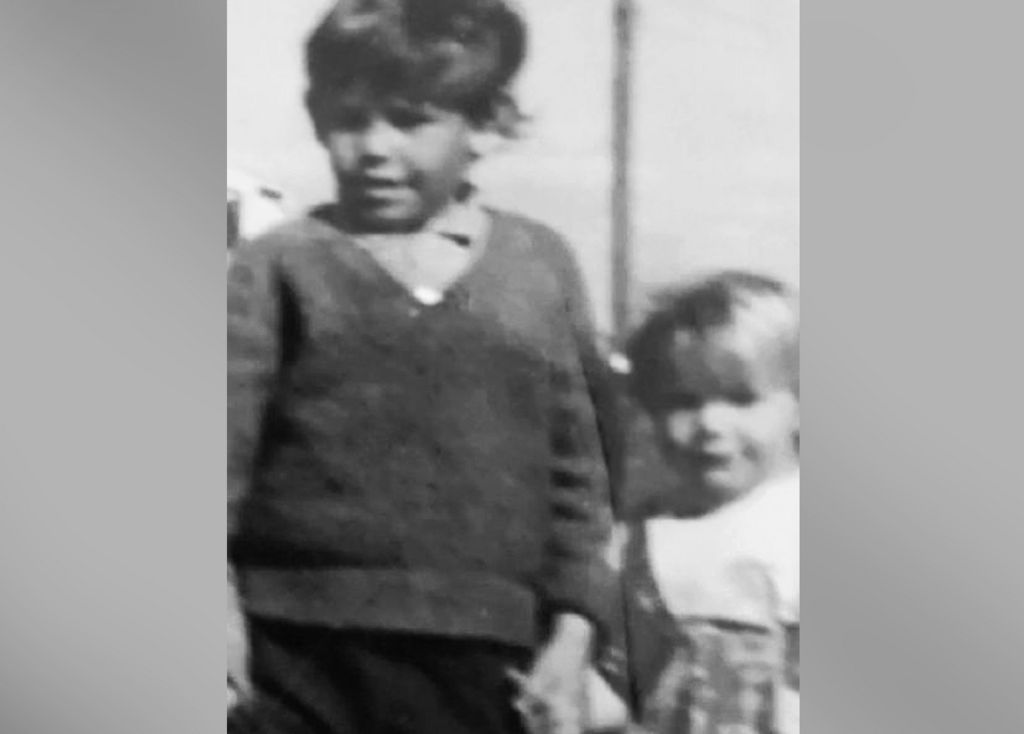 Image source, Grimmer family
Image source, Grimmer familyOver the decades, the pain of losing his sister meant Ricki cut himself off. He tried to move on. He tried to forget. He refused to confront his past. But the reopening of the police investigation in 2016, the rediscovery of the confession and the case coming to court forced him to face things and mend some of the relationships he had ignored.
In a Bristol pub, he meets some of the English cousins he didn't speak to for years. Now close again, they tease him about his choice of Australian Shiraz, rather than local beer. Ricki updates them on his campaign for justice and thanks them for their continued support: "We can't let this go. We are going to keep fighting. We can never give up."
The disappointments and frustrations of the past few years have at least reunited the Grimmer family on both sides of the world. They hope the New South Wales Government's recent offer of a A$1m reward (£528,000) for information will persuade somebody to come forward.
Driving Ricki from Bristol to Heathrow Airport, to catch a flight back to Australia, he asks me if we can stop at a local cemetery for a few minutes.
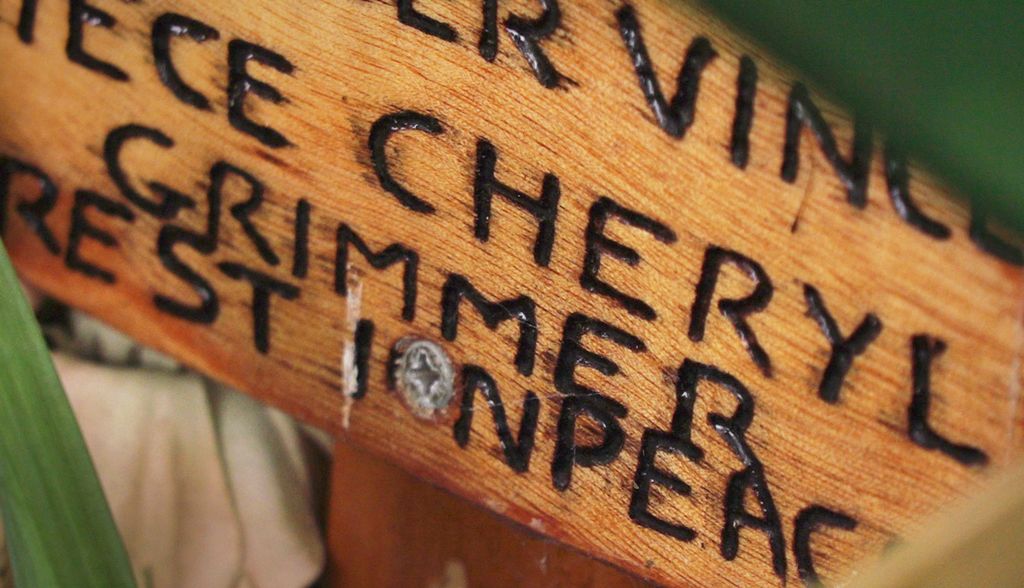 Image source, BBC/ANDY ALCROFT
Image source, BBC/ANDY ALCROFTIn the far corner of this quiet, rural graveyard, beneath some pine trees, he shows me the Grimmer family plot where his grandparents are buried. Then, he tells me to look more closely. A small wooden sign has been nailed onto the headstone by one of his relatives. It says: "Cheryl Grimmer. Rest in Peace."
Ricki places some flowers on the grave. The ornamental teddy bear he left here on his last trip to Bristol has faded a little, but it makes him smile.
"It's nice to have somewhere to come. Somewhere to remember."



No comments